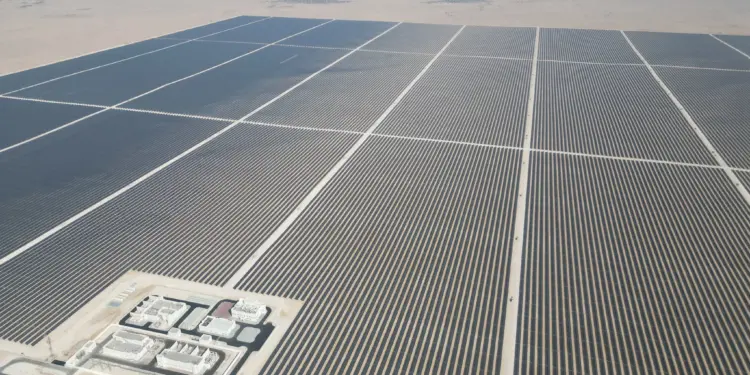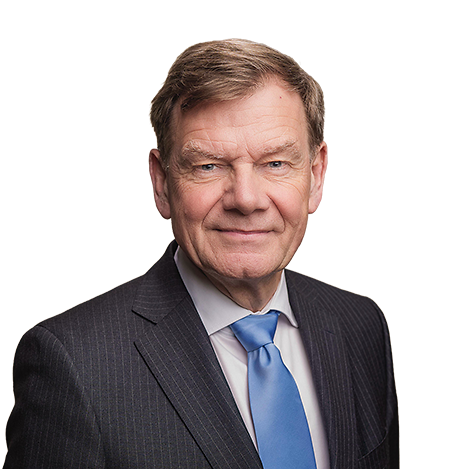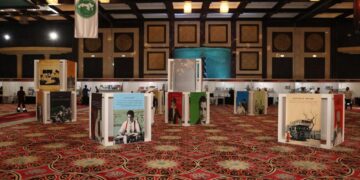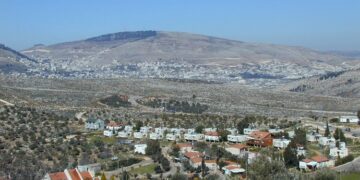Qatar’s Amir, Sheikh Tamim bin Hamad Al Thani, attended the inauguration ceremony of the Ras Laffan and Mesaieed solar power plants in Ras Laffan City. During the event, a documentary was screened detailing the construction phases and objectives of the plants, which aim to support Qatar’s strategy for transitioning to low-carbon energy and promoting environmental sustainability in line with Qatar National Vision 2030.
The two plants have a combined electricity generation capacity of 875 megawatts, with Mesaieed contributing 417 megawatts and Ras Laffan 458 megawatts. Built over an area of 10 square kilometers, the projects involved investments totaling 2.3 billion Qatari riyals ($631 million). QatarEnergy awarded the engineering, procurement, and construction contract for the plants to South Korea’s Samsung C&T in August 2022, with Samsung selected as the main contractor.
Qatar’s Minister of State for Energy Affairs, Saad bin Sherida Al-Kaabi, described the solar plants in the industrial cities as a key step toward implementing Qatar’s strategy to diversify energy sources and increase reliance on efficient renewable energy, which he called a cornerstone for a sustainable future.
The solar plants will reduce direct emissions by more than 28 million tons of carbon dioxide. Their output will help lower greenhouse gas emissions from QatarEnergy’s facilities in Mesaieed and Ras Laffan, particularly from projects expanding liquefied natural gas production at the North Field, while also increasing grid capacity at other sites.
The plants utilize high-efficiency bifacial solar panels mounted on single-axis trackers, along with daily-operated cleaning robots to remove dust from photovoltaic modules, minimizing generation losses due to pollution and boosting energy output.
In September 2024, QatarEnergy announced the construction of a new solar power plant in Dukhan with a 2,000-megawatt capacity, doubling solar electricity production to approximately 4,000 megawatts by 2030.
Qatar inaugurated its first solar power plant, Al Kharsaah, on October 18, 2022, a month before the FIFA World Cup 2022. Ranked as the world’s third-largest single-site photovoltaic project, Al Kharsaah has an 800-megawatt capacity, equivalent to 10% of Qatar’s peak electricity demand or the consumption of 55,000 households. Located 80 kilometers west of Doha, it features 1.8 million solar panels across 10 square kilometers. The plant employs advanced solar tracking technology and uses treated water for nighttime panel cleaning to enhance efficiency. The project, costing approximately $476 million, is a partnership between QatarEnergy Renewable Solutions (60%), Japan’s Marubeni Corporation (20.4%), and France’s TotalEnergies (19.6%).







